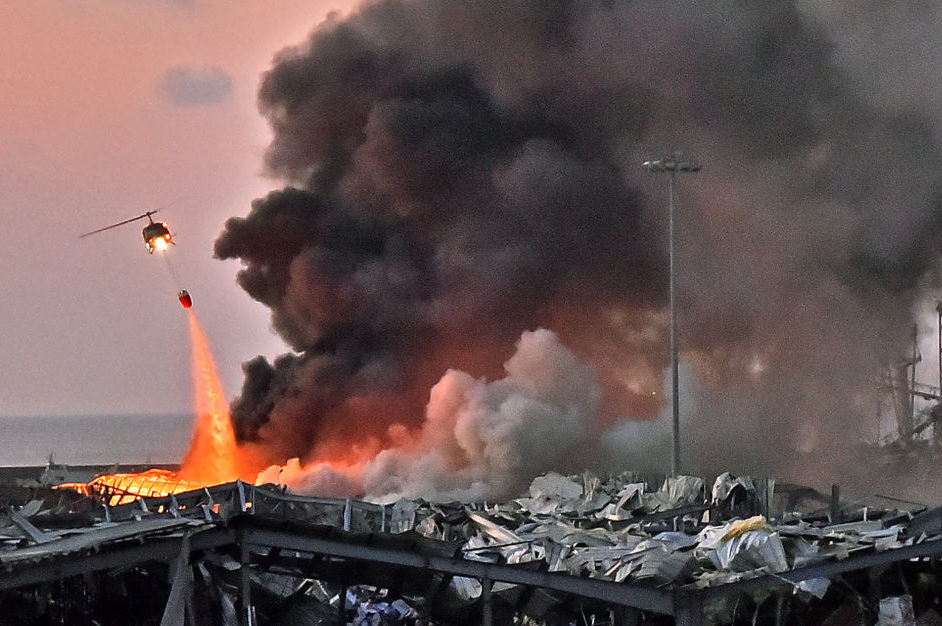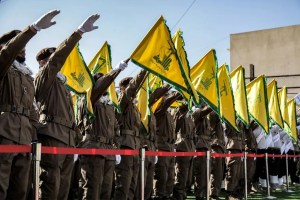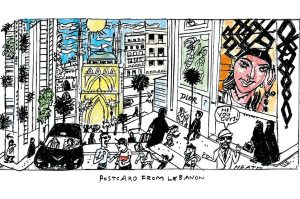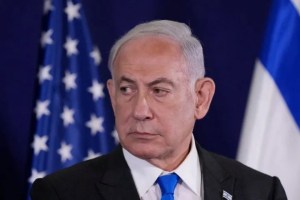Just before Twitter started firing out messages about a ‘bomb’ in Beirut, our cleaner rang us in tears, shaking, telling us our house had been damaged by an explosion. Video from her phone showed our windows blown out and splintered furniture. There was debris in the street and wrecked cars at odd angles. A man grabbed the phone from her to say there were injured everywhere, too many to count. Our house is in the Christian neighbourhood of Gemmayze, near the EU ambassador’s residence, and also close to a building belonging to the political party of a Christian militia leader. Automatically, I wondered if either of those could have been the target. Then we got a call from a friend in Monot, half a mile to the north. Her flat had been destroyed, she said. Then we got a message from someone else, half a mile in another direction. They, too, had felt the effects.
So this was a huge explosion, two separate blasts, in fact, the larger one apparently heard as far away as Cyprus. Someone on Twitter said – absurdly – that the Israelis had nuked Beirut, pointing to a mushroom cloud from the second blast. The Lebanese president, Michel Aoun, said on his Twitter feed that for the past six years, a warehouse at the port had been used to store 2,750 tonnes of ‘confiscated’ ammonium nitrate, a precursor for making explosives. This, said the president, was an unacceptable situation. As a measure of the explosive power that much ammonium nitrate represents, one thousandth of this, some two tonnes, was used in the Oklahoma bombing in 1995 that killed 168 people.
Who decided to leave this huge amount of bomb making material near the centre of Beirut? Several Lebanese friends and contacts messaged to say that this could only be Hezbollah, the Shiite militia and shadow state in Lebanon. Even if that’s not true, it shows what some Lebanese are thinking — and therefore how this crisis might develop. Hezbollah, through its media outlets, spoke about an accident involving ‘fireworks’. Major General Abbas Ibrahim, head of Lebanon’s General Security Directorate, said, acidly, that it would be ‘naive to describe such an explosion as due to fireworks’.
Someone I know with good contacts in the Hezbollah leadership said there had been an Israeli drone strike on a Hezbollah weapons dump. Perhaps that will be Hezbollah’s new line to take. Several witnesses have said they heard a plane flying low overhead before the explosion. A retired Army general, interviewed on Lebanese television, said he even saw a plane and that it fired a missile. Israel has denied having anything to do what happened and has offered to send aid. Lebanon and Israel remain in a formal state of war – there’s no chance whatsoever that aid would be accepted.
General Ibrahim, the Lebanese official responsible for public safety, moved quickly to say that this was not a terrorist attack, knowing that’s what almost everyone in Beirut would think. Car bombs and truck bombs have traditionally been used to solve political disputes in Lebanon. One such bomb killed the Lebanese prime minister, Rafik Hariri, in 2005. It was allegedly planted by four members of Hezbollah acting on Syrian orders. With immensely bad timing, on Friday the UN tribunal examining Hariri’s death is due to deliver a verdict in the case, the four Hezbollah members having been tried in absentia. I’m sure that many people in Beirut will have thought initially that today’s explosion was somehow linked to that.
[special_offer]
If Hezbollah are in any way to blame for this, it will be very bad for Lebanon – even if the explosion was an accident. The devastation is widespread. Save the Children says its teams on the ground reported entire streets ‘wiped out’. Many children are unaccounted for as rescue teams work through destroyed buildings and dig through rubble. The official number of dead stands at a few dozen but I’ve heard unofficial estimates of 200 killed and 4,000 injured. Hospitals were already under strain from a surge in coronavirus and are struggling to cope. People are frightened and furious and looking for someone to blame. The Lebanese Prime Minister, Hassan Diab, has declared that tomorrow will be a national day of mourning. Diab – who is a Sunni — gave a televised speech and said: “I promise you that this catastrophe will not pass without accountability… Those responsible will pay the price.’
Sectarian tensions were already high because of the economic crisis in the country. Coronavirus was the last blow to an economy that was already near collapse. The Lebanese currency has lost four fifths of its value since the pandemic started; panicked crowds gather outside banks, people unable to withdraw their savings; hospitals don’t have dollars to buy medicines, the power goes out for hours at a time; there’s no fuel to run generators; only yesterday the Lebanese foreign minister resigned, saying the country was becoming ‘a failed state’; people are even going hungry, their incomes outpaced by hyperinflation. All this has led a to retreat into confessional communities – Shia, Sunni and Christian – Lebanese eying each other suspiciously. A few weeks ago a friend in Beirut wrote saying that Lebanon was turning in Venezuela and would soon be Somalia. ‘There is a lot of talk about people buying weapons and arming themselves…don’t know if a war with Israel or a civil war will come first.’
This is a tragedy for Lebanon – but also a very dangerous moment.


















